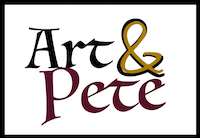
By Micha Green, AFRO Washington, D.C. Editor, [email protected]
Once audiences at Studio’s Doubt: A Parable can get past the strong, and at times, seemingly exaggerated accents, and loud noises from outside the theatre, they’re transported from present day Washington, D.C. to 1964 Bronx, N.Y. at St. Nicholas Church and School. With a show that has already received rave reviews and an extension to Oct. 20, audiences who come to Studio’s Doubt are not only treated to chilling entertainment, but leave questioning their ethics, values, widespread accusations, current stories in the media, and even their own religions.
In tackling the heavy John Patrick Shanley play, Studio’s Associate Director Matt Torney (If I Forget, The Hard Problem, Hedda Gabler), is serving as Doubt‘s director, and is leading a seasoned cast with veteran actor Sarah Marshall starring as Sister Aloysius Beauvier. Marshall, who “has the honor of having performed at Studio Theatre more than any other performer in its history,” according to her bio, not only brings a gravitas and cunning to Beauvier, but shows a softer more wounded side of the strict nun, allowing audiences to follow and rally behind her emotional, justice journey.
 Studio Theatre’s “Doubt: A Parable” has been extended until Oct. 20. (Courtesy Photo)
Studio Theatre’s “Doubt: A Parable” has been extended until Oct. 20. (Courtesy Photo)
Studio is taking on this parable at a time where many audiences already possess strong preconceived notions about integration, women in leadership, child molestation and the Catholic Church as a whole. Yet in the 1964 lives of the characters in Doubt, integration in schools is new, women are not well respected and can’t be alone with priests, child molesation isn’t talked about, and the Catholic Church is just allowing their priests to celebrate the Eucharist facing parishioners and speaking in the country’s local language as opposed to Latin. A lot was changing in the Catholic Church and in the United States at large, and audiences watch as characters battle to evolve with the times and hold onto traditional values.
The young nun, Sister James, played by Amelia Pedlow, represents the newness and changing aspects of the Church, however some of her values show her desire to hold onto tradition. Pedlow’s James first comes off as annoyingly timid, scared and always on the verge of tears; however these big acting choices become a strong and entertaining dichotomy to the strength the young nun shows when she stands up for herself and makes her voice and ideas heard. When Pedlow isn’t speaking, audiences watch her processing her scene partner’s words. Particularly in watching Pedlow’s partner work with the powerhouse that is Sarah Marshall as Sister Beauvier, the actress made bold choices that showed she was not just a spineless, scared teacher, but a passionate, intelligent educator with an eagerness to share knowledge and be fair to her students.
Christian Conn as Father Flynn opens the show and sets the tone for the play. His delivery throughout is as an honest and engaging priest. Part of Flynn, represents the youth of the Church and its leadership, and is a sign of the changing times, yet some of his interactions with the nuns shows his innate male privilege and priestly superiority. Father Flynn doesn’t mind changing the pageant music and adding more secular tunes, he uses modern and striking anecdotes in his sermons, and he even seems to have been a jock years back and is reliving his glory days as a basketball coach. The pompous, hypermasculinity seen in some of Conn’s acting choices when on stage with Marshall are in direct contrast to other softer, more “fatherly-like,” and vulnerable moments. Conn’s portrayal of Flynn makes him hard to completely write off, but does not absolve him of any guilt. As audiences watch the lack of clarity surrounding charges against Flynn, they are reminded of the many instances in modern media where cases are admittedly tricky. Conn’s inner monologues and internal emotional work, showed audiences the difficulty of combating accusations.
Tiffany M. Thompson as Mrs. Muller is hard to watch, depending on which side of the cause one falls. For this writer, Thompson’s portrayal of Muller slowly unveils a mother’s complicated battle to protect her son; however at times showed a cowardice that was difficult to see. In a lot of theatre, African American females are portrayed as the “strong Black woman,” yet Thompson is able to showcase the “scared Black mother.” What is most interesting, is to see moments when Thompson chooses to stand up for herself and with whom she does. Watching the partner work with a strong, strict nun who runs the school, who is still inferior to men- particularly priests, next to the Black mother who runs her house and invests in her son’s education, but is still afraid of her hypermasculine husband was an emotional journey for both the actors and audience alike.
The technical elements of Studio’s Doubt were outstanding and added to the tone, transitions and overall ability to transport audiences from the nation’s capital in 2019 to the Bronx in 1964. From the spotlight on Flynn during his sermons, to the light changes from outside, to Beauvier’s principal’s office, the lighting in Doubt, designed by Dawn Chiang, perfectly helped with understanding the tone, setting and circumstances in the play. The set design by Daniel Conway was beautiful, plain, intricate and simplistic all at once. The clearly appeared like a school. The stairs in the background, the desk and items in the distant foreground, and the intentional empty spaces, helped highlight the strong directorial pictures created by Torney and the actors, and add to the overall understanding of the play’s environment. The sound design by Victoria Deiorio, was quite memorable, and had this preacher’s kid singing along. The sound offered nostalgia in the best of ways and elevated the church-like tone. In addition, the costumes were beautiful. The material appeared to be great quality even from the audience and the colors, seemingly liturgically and dramaturgically sound, were gorgeous to witness from stage. The costumes also perfectly fit the setting and each character’s unique personalities.
Finally Studio’s Doubt makes the audience ask questions. In many instances, society has been seasoned to believe the victim, but what if the victim hasn’t said anything? Is the so-called “victim” protecting someone or not a “victim” at all? Is the brave advocate speaking on behalf of the fearful and voiceless or truly a rebel without a cause? Do parents try to protect their children and end up hurting them instead?






